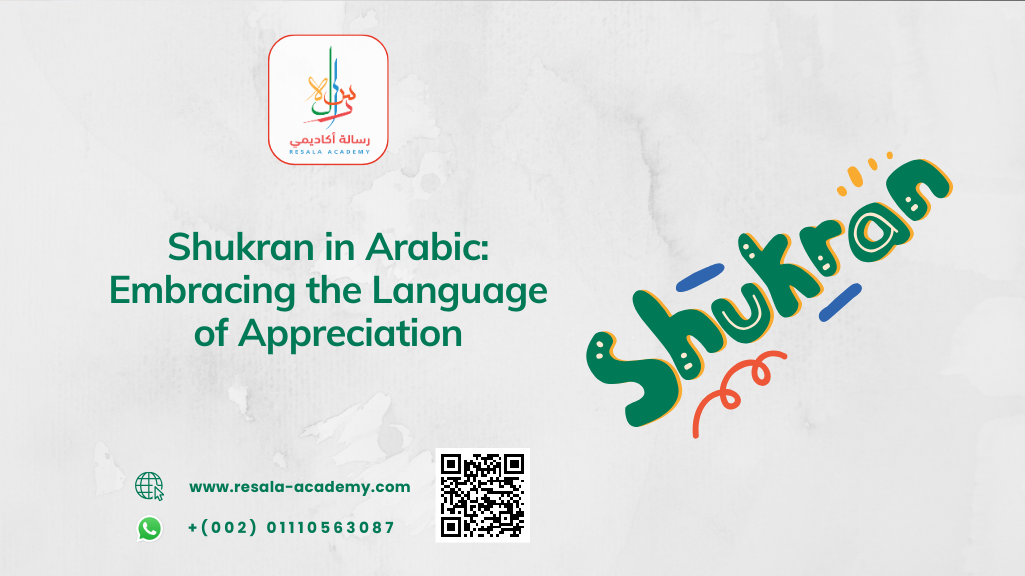Table of Contents
How to Speak Arabic in 90 Days: A Structured Learning Plan for Busy Adults
Learning a new language is a powerful gateway to new cultures, opportunities, and perspectives. For many non-native speakers, the desire to learn Arabic stems from a deep interest in the language’s rich history, religious significance, and global relevance. But how to speak Arabic for a busy adult realistically to achieve fluency in Arabic in just 90 days?
In this comprehensive guide, we’ll walk you through a structured, time-efficient plan to help you master the fundamentals of Arabic, whether for travel, work, or personal growth. With the support of trusted platforms like Resala Academy, learning Arabic online has never been more accessible or effective.
Why Learn Arabic?
Arabic is spoken by over 400 million people worldwide and is the official language of more than 25 countries. It is also one of the six official languages of the United Nations. Whether you’re interested in Islamic studies, Middle Eastern politics, or simply want to connect with Arabic-speaking communities, learning Arabic opens countless doors.
Key Benefits of Learning Arabic:
- Professional Opportunities in diplomacy, translation, journalism, and international business.
- Cultural Understanding of Arabic literature, music, and cinema.
- Religious Insight, especially for those studying the Qur’an or Islamic theology.
- Travel Convenience across the Middle East and North Africa (MENA) region.
How to Speak Arabic: The 90-Day Arabic Learning Blueprint
The key to learning Arabic in 90 days lies in consistency, structure, and the right resources. Below is a week-by-week breakdown tailored for busy adults.
Phase 1: Foundation Building (Days 1–30)
Goals:
- Learn the Arabic alphabet
- Master basic pronunciation
- Understand sentence structure
- Build a core vocabulary of 300–500 words
Weekly Breakdown:
Week 1: Master the Alphabet
- Learn all 28 Arabic letters and their contextual forms.
- Practice writing and recognizing letters.
- Use tools like Resala Academy’s Arabic Course.
Example:
- Arabic: أ – ب – ت – ث
- English: A – B – T – Th
Week 2: Pronunciation & Phonetics
- Focus on Arabic sounds not found in English (e.g., ع /ʿayn/, ق /qāf/).
- Practice with native audio recordings.
- Use Resala Academy’s pronunciation drills.
Week 3: Basic Grammar & Sentence Structure
- Learn subject-verb-object (SVO) order.
- Understand gender and number agreement.
Example:
- Arabic: أنا أحب القهوة
- English: I love coffee
Week 4: Core Vocabulary
- Focus on high-frequency words: greetings, numbers, days, family, and food.
- Use spaced repetition systems (SRS) like Anki or Memrise.
Phase 2: Practical Application (Days 31–60)
Goals:
- Expand vocabulary to 1000+ words
- Begin speaking in short sentences
- Practice listening and comprehension
Weekly Breakdown:
Week 5: Conversational Phrases
- Learn essential phrases for daily interactions.
Examples:
- Arabic: كيف حالك؟
- English: How are you?
- Arabic: أين الحمام؟
- English: Where is the bathroom?
Week 6: Listening Comprehension
- Watch Arabic shows with subtitles.
- Listen to Arabic podcasts or YouTube channels.
Week 7: Speaking Practice
- Engage in daily speaking exercises.
- Use language exchange apps like HelloTalk or Tandem.
- Book live sessions at Resala Academy courses.
Week 8: Reading & Writing
- Start reading short Arabic stories or children’s books.
- Write daily journal entries in Arabic.
Phase 3: Immersion & Fluency (Days 61–90)
Goals:
- Engage in full conversations
- Read short texts fluently
- Write paragraphs and emails in Arabic
Weekly Breakdown:
Week 9: Real-Life Scenarios
- Practice dialogues for shopping, dining, and travel.
Example:
- Arabic: أريد شراء هذا القميص
- English: I want to buy this shirt
Week 10: Intermediate Grammar
- Learn verb conjugations in past and present tenses.
- Understand prepositions and plurals.
Week 11: Cultural Immersion
- Explore Arabic music, poetry, and news.
- Participate in online Arabic-speaking forums.
Week 12: Final Review & Assessment
- Take a mock proficiency test.
- Record yourself speaking for self-assessment.
- Get feedback from a tutor at Resala Academy.
Advanced Strategies to Accelerate Arabic Fluency
Once you’ve laid the groundwork, it’s time to implement advanced techniques that elevate your ability to speak Arabic fluently. These strategies are especially useful for learners aiming to go beyond basic conversation and into more nuanced, confident communication.
Shadowing Native Speakers
▪️ Listen to native Arabic audio (e.g., news, podcasts, or YouTube) and repeat sentences simultaneously.
▪️ This technique improves pronunciation, rhythm, and intonation naturally.
▪️ Focus on Modern Standard Arabic (MSA) or your target dialect for best results.
▪️ Use resources like Resala Academy’s lessons for structured shadowing exercises.
Use Arabic in Your Daily Life
▪️ Label household items in Arabic to reinforce vocabulary retention.
▪️ Change your phone or social media language settings to Arabic.
▪️ Write shopping lists, reminders, or even to-do notes in Arabic.
▪️ These immersive habits help you practically internalize the language.
Practice Thought Translation
▪️ Try mentally translating your thoughts or surroundings into Arabic throughout the day.
▪️ For example, if you see a car, think: “هذه سيارة” (“This is a car”).
▪️ This builds fluency by training your brain to process Arabic in real time.
▪️ Combine this with journaling to reinforce grammar and vocabulary.
Join Arabic Discussion Groups
▪️ Participate in online forums, WhatsApp groups, or Facebook communities focused on Arabic learners.
▪️ Engage in discussions, ask questions, and share your progress.
▪️ Resala Academy offers exclusive community access for enrolled students to practice with peers and native speakers.
Cultural Immersion Techniques That Deepen Language Mastery
Understanding how to speak Arabic also means embracing the cultural nuances that shape the language. Arabic is deeply intertwined with its traditions, values, and social etiquette. These cultural immersion techniques will help you develop a more authentic and respectful command of the language.
Explore Arabic Proverbs and Idioms
▪️ Arabic is rich with expressions that carry cultural weight and poetic beauty.
▪️ Example: “الصبر مفتاح الفرج” — “Patience is the key to relief.”
▪️ Learning idioms enhances your conversational depth and helps you sound more native.
▪️ Resala Academy includes idiomatic expressions in its intermediate and advanced courses.
Celebrate Arabic Holidays and Traditions
▪️ Participate in Ramadan, Eid, or other cultural events to understand contextual language use.
▪️ Learn relevant vocabulary such as:
- رمضان كريم (Ramadan Kareem) – “Generous Ramadan”
- عيد سعيد (Eid Sa’id) – “Happy Eid”
▪️ These experiences provide real-world language exposure and emotional connection.
Watch Arabic Dramas and Films with Subtitles
▪️ Choose content with both Arabic and English subtitles to reinforce listening and reading skills.
▪️ Focus on shows from Egypt, Lebanon, or the Gulf to explore different dialects.
▪️ Try pausing to repeat lines aloud, mimicking tone and emotion.
▪️ Resala Academy recommends curated media lists tailored to your learning level.
Study Arabic Calligraphy and Poetry
▪️ Engage with the artistic side of Arabic to appreciate its aesthetic and linguistic beauty.
▪️ Practice writing verses or short poems to improve script fluency and cultural understanding.
▪️ This also boosts your vocabulary and introduces you to classical Arabic structures.
By integrating these advanced and culturally immersive strategies into your learning routine, you’ll not only master how to speak Arabic with confidence but also gain a deeper appreciation for the language’s soul and structure.
Advanced Strategies to Sustain Long-Term Arabic Fluency
Once you’ve completed your 90-day plan and gained a foundational grasp of how to speak Arabic, the next step is maintaining and expanding your fluency. This requires deliberate practice, exposure to diverse dialects, and immersion in authentic content.
Dialectal Exposure for Real-World Communication
- Arabic is a pluricentric language, meaning it has multiple spoken dialects across regions.
- Exposure to dialects such as Egyptian, Levantine, or Maghrebi Arabic enhances your ability to understand native speakers in real-life scenarios.
- For example:
- Egyptian: إزيك؟ (izzayyak?) – How are you?
- Levantine: شو أخبارك؟ (shoo akhbarak?) – What’s new with you?
- Resala Academy offers elective modules in regional dialects to help learners adapt to various cultural contexts.
Immersive Content and Media Consumption
- To retain fluency, immerse yourself in Arabic-language media, including:
- Arabic novels and newspapers
- Islamic lectures and sermons
- Arabic YouTube channels and podcasts
- This not only reinforces vocabulary and grammar but also keeps learners attuned to contemporary usage and idiomatic expressions.
- Platforms like Resala Academy curate recommended content tailored to your proficiency level and interests.
By integrating these advanced strategies and specialized content areas, learners can move beyond basic fluency and develop a profound, lasting command of the Arabic language, both spoken and written.
Tools & Resources to Accelerate Your Arabic Learning
Here are some recommended tools and platforms to support your 90-day journey:
Learning Platforms:
- Resala Academy: Offers structured Arabic courses for all levels.
Listening & Watching:
Reading Materials:
- Arabic children’s books (e.g., “حكايات عربية”)
- Qur’anic Arabic for religious learners
- Arabic news articles with English translations
Pro Tips for Busy Adults
- Set SMART Goals: Specific, Measurable, Achievable, Relevant, Time-bound.
- Use Microlearning: 15–20 minutes a day is better than cramming.
- Practice Daily: Even 10 minutes of speaking helps build fluency.
- Join a Community: Language learning is more effective with peers.
- Track Your Progress: Use journals or apps to monitor improvement.
Ready to master Arabic in record time? Discover how our intensive online course can accelerate your learning—start your language journey today!
Your Arabic Journey Starts Here: Join Resala Academy Today!
If you’re serious about learning how to speak Arabic, there’s no better companion than Resala Academy. Designed specifically for non-native speakers, the Resala Academy Arabic course offers:
🎓 Certified Arabic instructors with native fluency
💻 Live, interactive online classes
📈 Personalized learning plans tailored to your schedule
🕌 Specialized courses in Qur’anic Arabic and Islamic Studies
Whether you’re a complete beginner or looking to refine your skills, Resala Academy provides the tools, support, and motivation you need to succeed.
Start your Arabic journey today and unlock a new world of communication and culture.
Frequently Asked Questions (FAQs)
1. Is Arabic hard to learn for English speakers?
Arabic can be challenging due to its script, pronunciation, and grammar. However, with structured guidance from platforms like Resala Academy, learners can progress quickly. The key is consistency and using the right resources.
2. What dialect of Arabic should I learn?
It depends on your goals. Modern Standard Arabic (MSA) is used in media, education, and formal communication. If you’re focusing on a specific region, you might consider Egyptian, Levantine, or Gulf dialects. Resala Academy offers courses in both MSA and regional dialects.
3. Can I really speak Arabic in 90 days?
Yes, with daily practice, focused study, and support from professional tutors, you can achieve conversational fluency in 90 days. Many students have successfully done so.
4. Do I need to learn Arabic script?
Absolutely. Learning the script is essential for reading, writing, and understanding Arabic. The good news is that the alphabet is phonetic and can be learned in just a few days.
5. How much time should I dedicate daily?
Ideally, 30–60 minutes per day. Even if you’re busy, breaking it into smaller sessions (e.g., 15 minutes in the morning, 15 in the evening) can be effective.
Conclusion
Learning how to speak Arabic doesn’t have to be overwhelming or time-consuming. With a structured plan, the right mindset, and expert guidance from Resala Academy, you can achieve your language goals in just three months.
Arabic is more than just a language—it’s a bridge to understanding a vibrant culture, a rich history, and millions of people around the world. Whether for personal, professional, or spiritual reasons, your journey to fluency starts now.
Ready to transform your future? Join Resala Academy today and speak Arabic with confidence in 90 days.




